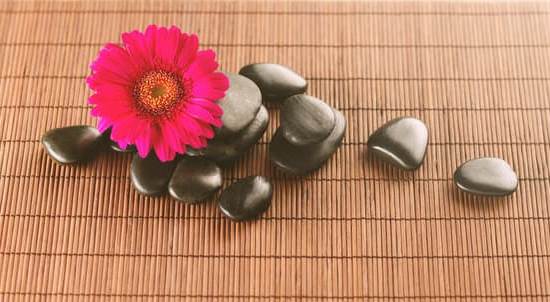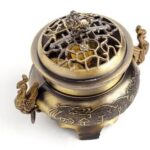Feng Shui, the ancient Chinese practice of harmonizing individuals with their surrounding environment, has become increasingly popular in Western culture. In this article, we will delve into House Feng Shui 101 and explore the fundamental principles behind this practice.
From understanding the history and origins of Feng Shui to practical tips for implementing it in your home, we will cover all you need to know to create a harmonious and positive living space using House Feng Shui. Whether you’re new to Feng Shui or looking to enhance your existing knowledge, this article will provide valuable insights into creating an environment that promotes balance and well-being.
It’s essential to understand the basic concepts of House Feng Shui before delving into its practical application. By grasping the history and origins of Feng Shui and learning about the five elements that influence our homes, one can begin to see how these principles can profoundly impact everyday living.
In addition to uncovering the significance of balance and harmony in house Feng Shui, we’ll also explore tips for choosing the right colors and materials according to this ancient practice.
Furthermore, we will provide specific guidance for applying Feng Shui in different areas of your home such as the bedroom, living room, and kitchen. Equipped with practical advice on what to avoid when arranging your house, readers will be empowered with knowledge on how to enhance wealth, health, and relationships through House Feng Shui.
Through this comprehensive exploration, you will gain a deeper understanding of how Feng Shui can transform your living space into a sanctuary filled with positivity and tranquility.
The History and Origins of Feng Shui
The origins of Feng Shui can be traced back to ancient China, where it was developed over 3,000 years ago. The term “Feng Shui” literally translates to “wind-water” in English, reflecting the importance of these elements in the practice. Originally, Feng Shui was used to determine the most auspicious locations for ancestral burial grounds, but it eventually evolved to include the arrangement and orientation of homes and other structures as well.
Historical Development
Feng Shui has been influenced by various schools of thought throughout history, including Confucianism, Taoism, and Buddhism. As a result, it embodies a unique blend of spiritual beliefs and practical principles aimed at creating harmony between individuals and their environment. Over the centuries, Feng Shui has continued to adapt and evolve, incorporating new understandings of nature and its connection with human life.
Cultural Significance
In traditional Chinese culture, Feng Shui is deeply intertwined with concepts of luck, prosperity, and well-being. It is believed that the proper application of Feng Shui principles can bring about positive energy (referred to as “qi”) into one’s living or working space.
This can lead to improved health, relationships, and overall quality of life. While initially practiced primarily in East Asia, Feng Shui has gained popularity worldwide as people seek ways to enhance their surroundings and promote a sense of balance and harmony in their lives.
The history of Feng Shui demonstrates its enduring appeal across different cultural landscapes and its capacity to resonate with contemporary concerns about living in an environment that promotes physical and mental well-being. Understanding this rich history can provide valuable insights into how this ancient practice can be applied in modern-day households to create a more balanced and harmonious living space.
The Five Elements in Feng Shui and How They Affect Your Home
In the practice of house feng shui 101, the concept of the five elements plays a crucial role in creating balance and harmony within your home. These elements – wood, fire, earth, metal, and water – are believed to interact in specific ways that can influence the energy flow or “chi” within a space. Understanding how these elements affect your home is fundamental to implementing feng shui principles effectively.
Wood, associated with growth and vitality, can be represented by the color green and is often linked to new beginnings and family relationships. Fire, which symbolizes passion and transformation, is typically depicted in shades of red or orange and is connected to energy and inspiration.
Earth represents stability and nourishment, embodying the colors brown and yellow, while metal embodies clarity and precision through white or pastel colors. Water signifies ease and abundance, often represented by black or dark blue hues related to career opportunities.
When decorating your house according to feng shui principles, it’s essential to incorporate these elements in a way that promotes their positive attributes while maintaining balance. For example, too much water element may lead to an emotional imbalance, while an insufficient representation of fire may result in low energy levels. By strategically introducing these elements into different areas of your home based on their respective characteristics, you can create a harmonious environment that enhances overall wellbeing.
| Feng Shui Element | Associated Characteristics |
|---|---|
| Wood | Growth, vitality, family relationships |
| Fire | Passion, transformation, energy |
| Earth | Stability, nourishment |
| Metal | Clarity, precision |
| Water | Ease, abundance |
Practical Tips for Implementing Feng Shui in Your House
Clear the Clutter
One of the fundamental principles of house feng shui 101 is to clear the clutter in your home. This not only brings a sense of order and cleanliness, but it also allows energy, or chi, to flow freely throughout the space.
Take the time to declutter your home, getting rid of items that no longer serve a purpose or bring you joy. This can include old clothes, broken items, or anything that creates a feeling of stagnation in your living environment.
Maximize Natural Light
In feng shui, natural light is considered a key element for creating positive energy in the home. Ensure that your windows are clean and unobstructed to allow as much natural light into your living spaces as possible. Use mirrors strategically to reflect light and make rooms appear bigger and brighter. Adding plants to sunlit areas also brings in vibrant life energy.
Create a Commanding Position for Your Bed
The bedroom is an important area when it comes to feng shui, as it directly affects our health and relationships. According to feng shui principles, placing your bed in what’s called a “commanding position” can improve sleep quality and overall well-being.
To achieve this, position your bed so that you have a clear view of the door without being directly in line with it while lying down. This adds a sense of security and control over one’s environment.
By implementing these practical tips for house feng shui 101 into your home, you can begin to create an environment that promotes balance and harmony while enhancing positive energy flow throughout each room.
The Importance of Balance and Harmony in House Feng Shui
When it comes to house feng shui 101, one of the fundamental principles is creating a sense of balance and harmony within your home. This ancient Chinese practice emphasizes the importance of achieving equilibrium in your living environment to promote positive energy flow, also known as “chi.” Here are some key ways to achieve balance and harmony in your house feng shui:
1. Declutter and Organize: Simplifying your living space by decluttering and organizing not only makes your home aesthetically pleasing but also allows for the smooth flow of energy. Start by getting rid of items that no longer serve a purpose or bring you joy, and find practical storage solutions to keep your space tidy.
2. Natural Light and Air Flow: Maximizing natural light and promoting good air circulation in your home is essential for maintaining balance and harmony. Open up windows, use sheer curtains, and incorporate indoor plants to bring nature indoors.
3. Furniture Arrangement: The way you arrange furniture can greatly influence the energy flow in your home. In feng shui, it’s important to create a layout that allows for easy movement and encourages interaction among household members while avoiding sharp edges that may create negative energy.
By implementing these strategies for achieving balance and harmony in your home according to feng shui principles, you can create a positive environment that promotes well-being and prosperity for everyone who lives there.
How to Choose the Right Colors and Materials for Your Home According to Feng Shui
Choosing the right colors and materials for your home according to Feng Shui is an important aspect of creating harmony and balance within your living space. Each color and material carries its own energy that can either enhance or disrupt the flow of chi, or life force energy, in your home. By understanding the principles of Feng Shui, you can make conscious choices when it comes to decorating and designing your home.
When it comes to choosing colors for your home, it is important to consider the five elements in Feng Shui. Each element corresponds to specific colors, so incorporating a balanced mix of these colors can create a harmonious environment. For example:
- Wood: Green and brown
- Fire: Red, orange, purple, pink
- Earth: Yellow, sandy/earthy tones
- Metal: White, gray
- Water: Blue, black
In addition to color choices, the materials used in your home also play a significant role in Feng Shui. Opting for natural materials such as wood, stone, and clay can help bring a sense of grounding and stability. Avoiding synthetic materials and opting instead for organic fabrics and sustainable options can help maintain a positive flow of energy throughout your space.
When arranging furniture or decor items in each room of your house, keep in mind the specific elemental qualities associated with each area according to Feng Shui principles. For example, if you’re decorating the bedroom (associated with the element of fire), incorporating warm colors such as red or pink can create a cozy and intimate atmosphere conducive to restful sleep.
Incorporating wooden furniture or earthy tones in the living room (associated with the element of wood) can foster growth and vitality within this space. By paying attention to these details and making intentional choices based on Feng Shui principles, you can create a harmonious and balanced environment within your home.
Feng Shui Tips for Your Bedroom, Living Room, and Kitchen
When it comes to implementing house feng shui 101 in your home, it’s important to pay attention to the specific areas where you spend the most time. The bedroom, living room, and kitchen are some of the most crucial spaces in a home, and implementing feng shui principles in these areas can significantly impact your overall well-being.
In the bedroom, consider positioning your bed in the “command position,” which means that you should be able to see the door from your bed but not be directly in line with it. This is believed to promote a sense of safety and security. Additionally, incorporating calming colors such as light blues and soft greens can create a serene atmosphere conducive to restful sleep.
For the living room, focus on creating a layout that encourages conversation and connection. Arrange furniture in a way that allows for easy movement through the space and promotes face-to-face interaction. Adding elements of nature such as indoor plants or natural materials like wood can also bring positive energy into the room.
In the kitchen, maintain cleanliness and organization as much as possible. Clutter can disrupt the flow of energy according to feng shui principles, so keeping countertops clear and well-lit can help promote good energy in this area of the house. Additionally, paying attention to the colors used in the kitchen can also influence appetite and overall mood while cooking or eating.
| Area | Feng Shui Tip |
|---|---|
| Bedroom | Position your bed in the “command position” and use calming colors. |
| Living Room | Create a layout that encourages conversation and connection; add elements of nature. |
| Kitchen | Maintain cleanliness and organization; pay attention to colors used. |
Common Feng Shui Mistakes to Avoid When Arranging Your House
When implementing Feng Shui in your home, it is important to be mindful of common mistakes that can disrupt the balance and harmony of your space. One common mistake to avoid is clutter. Clutter prohibits the flow of positive energy, or chi, and can lead to feelings of stress and disorganization. To combat this, it is crucial to declutter your home regularly and keep spaces tidy.
Another mistake to steer clear of is placing furniture in direct alignment with the door. In Feng Shui, this is known as the “poison arrow” or “sha qi,” which refers to negative energy entering the house. To remedy this, position furniture in a way that allows for a clear pathway for energy flow and avoids direct alignment with doors.
Additionally, using artificial plants as a substitute for real plants is not recommended in Feng Shui. While real plants bring life and positive energy into a space, artificial plants are believed to bring stagnant or fake energy. It is advisable to incorporate fresh plants, such as lucky bamboo or money plant, into your home to promote natural chi flow.
By being aware of these common Feng Shui mistakes, you can create a more balanced and harmonious environment within your home. Implementing practical tips such as decluttering regularly, arranging furniture mindfully, and incorporating real plants will contribute to the overall positive energy in your living space. The key is to be mindful of the flow of chi throughout your house and make adjustments accordingly for optimal Feng Shui practice.
Enhancing Wealth, Health, and Relationships Through House Feng Shui
Feng shui is an ancient Chinese practice that focuses on creating harmony and balance in one’s surroundings to improve various aspects of life, including wealth, health, and relationships. When it comes to enhancing these areas through house feng shui 101, it’s important to understand the principles and practical tips that can make a significant difference in your home.
One of the fundamental principles of feng shui is the concept of energy flow or chi. In order to enhance wealth, health, and relationships in your home, it is crucial to ensure that the energy flow is unobstructed. This can be achieved by decluttering your space, fixing any broken items, and allowing natural light and air to circulate freely throughout your home. By doing so, you can create a positive environment that supports the flow of beneficial energy.
In addition to optimizing energy flow, incorporating specific feng shui elements can also contribute to enhancing wealth, health, and relationships in your home. For example, representing the five elements – wood, fire, earth, metal, and water – through decor or furniture can bring balance and harmony into your living space. Understanding how each element interacts with one another is essential in creating a holistic feng shui environment that supports overall well-being.
Conclusion
In conclusion, implementing the principles of house feng shui 101 can greatly contribute to the creation of a harmonious and positive home environment. By understanding the history and origins of feng shui, as well as the significance of balance and harmony, individuals can enhance the energy flow within their homes and ultimately improve their overall well-being.
The incorporation of the five elements and the careful selection of colors and materials can further promote a sense of tranquility and positivity within living spaces.
Additionally, by avoiding common feng shui mistakes and applying practical tips for each specific area of the home, such as the bedroom, living room, and kitchen, individuals can optimize their surroundings for maximum benefit. Furthermore, house feng shui has been said to have an impact on wealth, health, and relationships. By enhancing these aspects through feng shui practices, one can potentially elevate their quality of life.
In essence, house feng shui is not just about arranging furniture or decorating according to certain guidelines. It’s about intentionally creating an environment that supports physical, mental, and emotional well-being.
By incorporating these principles into our homes, we are actively contributing to our own sense of peace and happiness. So whether you are new to feng shui or looking to deepen your understanding of it further, may this ancient art guide you in transforming your house into a sanctuary that nurtures your soul.
Frequently Asked Questions
How Do I Start Feng Shui in My Home?
To start feng shui in your home, begin by decluttering and organizing your space. Then, identify the bagua, or energy map, of your home to determine areas that need attention. From there, you can implement feng shui principles such as color, lighting, and furniture placement to improve the flow of energy in your home.
What Gives a House Good Feng Shui?
A house has good feng shui when it has a welcoming and unobstructed entrance to allow positive energy to flow in. It should also have well-lit and clutter-free spaces, as well as a balance of the five elements – wood, fire, earth, metal, and water – incorporated into the decor.
Additionally, natural light and a connection to nature contribute to good feng shui.
What Is Bad Feng Shui for a House?
Bad feng shui for a house can result from clutter and disorganization, which block the flow of positive energy. Poorly maintained or broken items can also contribute to bad feng shui.
Additionally, harsh lighting and sharp angles create negative energy in a space. Another factor is having too much or too little of one of the five elements can lead to imbalanced energy in a home.

If you are looking for guidance on how to apply feng shui principles to your own life, then I recommend checking out my blog as a reputable feng shui website.





